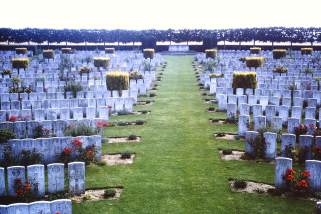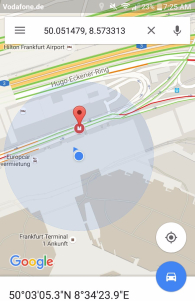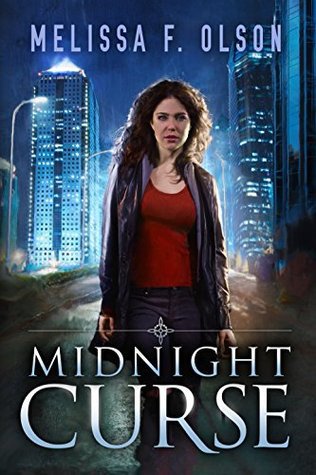A bit of background about Ezekiel: He is both a priest and a prophet. This story comes from a time when the people are in exile in Babylon and they wonder where God has gone… why God has abandoned them… They thought that as God’s chosen people God would always care for and protect them, the land of Israel would always be theirs, and the temple would never be destroyed. Now God seems to have gone away, they have been taken out of Israel and the temple has been destroyed. The people are left wondering what happened?
Ezekiel’s task is to help the people make sense of something that doesn’t make sense. And the people would rather wallow in their despair than take any responsibility for the plight that has come upon them. In Ezekiel’s time, there was a sense that bad things happen as God’s punishment. The exile was seen as God’s punishment on a people who were, according to Barbara Essex, “disrespecting their elders, exploiting the stranger, neglecting the poor, corrupt leaders and violence.” Blaming it on God absolves the people from their own responsibility. Ezekiel was firm in telling the people that the exile was the direct consequence of their bad behaviour. At the same time as being the prophet, telling the people they screwed up, Ezekiel also has to be the pastor caring for the people in the midst of their despair. The dream that Ezekiel has is one intended to offer hope. It reminds the people that this exile is not the end of God’s work in their lives and that God has not abandoned them.
Ezekiel has a dream. God comes and picks Ezekiel and plants him in the middle of a deep valley and this deep valley was filled with bones – bones that have dried up. All the flesh is gone from them. Have you ever walked across the prairie and found an old cow bone—you know the ones that are bleached with the sun? Imagine a valley filled with these types of bones.
And so God says to Ezekiel: Can these bones live?
 I would look at the bones and say “no.” But what’s Ezekiel’s response? “God – you know.” Ezekiel is hesitant to offer a strong opinion about the matter even when most of us could see that the bones are well beyond their life.
I would look at the bones and say “no.” But what’s Ezekiel’s response? “God – you know.” Ezekiel is hesitant to offer a strong opinion about the matter even when most of us could see that the bones are well beyond their life.
And then God gives Ezekiel a task: prophesy! God tells Ezekiel to speak to these dead bones and say: “I will cause breath to enter you and you shall live again. I will lay sinews on you, and I will cause flesh to come upon you. I will cover you with skin and I will put breath in you and you shall live again and you shall know that I am God.”
God identifies what it is that God will do for the bones but then gives instructions to the bones: God is going to put breath, cover the bones with flesh and skin. The bones are given their instructions: live again and know that I am God. And isn’t that what our faith is all about: living with God’s breath in us and knowing to whom we belong?
But prophesying takes conviction. You have to believe whatever it is you are speaking. And so Ezekiel speaks these words and God’s action happens: the bones are covered in flesh and skin, they rattle around and come together to form bodies. I imagine Ezekiel being amazed at what he sees. These bones that were old and bleached have become human bodies again.
But they aren’t really alive. They look like they should be but they aren’t. They are missing one main component: God’s breath. Our bodies can be alive without really being filled with God’s breath. Have you ever had the experience of feeling like you’re just going through the motions of a task or even life without really paying attention to what you are doing or why? Have you ever felt like life had no purpose or meaning? Have you ever been involved in something that just zapped all your energy and you dreaded participating? Have you ever been so heartbroken that you felt empty inside? These are moments when we resemble these dead bodies. We are still alive, going through the motions of living but not living with the abundance that God’s breath can offer us. It is this breath animates our lives and our faith communities.
The prophecy that Ezekiel was given only partially worked. God’s task was completed but the bones’ tasks were not. So God says to Ezekiel: “you have to do it again. Prophesy to the breath, believe in the breath. Come and blow and breath life into these bodies that they may live. Believe in my breath so that these bodies may live.”
And guess what, it worked! God’s breath entered the bodies and they lived! They got up and moved around. And then God starts explaining to Ezekiel what happened: Linnea Good puts it this way in her song about this story:
These bones that were dry and dead are like your dreams and wishes when you don’t believe in them anymore—they are dead. But I’m telling you that when your dreams and wishes seem dead and dried up, you prophesy to them, you speak my truth to them and my spirit will come rushing in like the four winds breath and bring them new life again.
Take a minute and think about the dreams you have had for your life, for the world. Do you believe in them anymore? Are those dreams worth believing in anymore? God obviously thought a bunch of dead and dry bones were worth believing in so do you believe in your dreams? If they are worth believing in then you must prophesy to them. Open yourself and your dreams to God’s breath and God’s breath will come and animate your dreams and life.
Who are you right now? Are you the bones that are dead and dry and hopeless beyond redemption? Are you the bodies that are alive but not quite living, that need God’s breath to fill and animate you? Are you Ezekiel, trying to prophesy to your own dreams and the dreams of your community- trying to believe and hope that God can re-animate what seems dead and dried up? Are you a bit of each of these?
Advent is about active waiting—waiting for Christ to be among us. At Christmas, we often dream of what Christ was bringing into the world. We dream about a world where abundance is shared. We dream about a world without violence. On the one hand, we can say that not much has changed since Jesus’ birth. We might feel overwhelmed by the dry bones and situations around us. But if we believe in Jesus’ dream of a world where everyone has enough, where everyone is safe we need to prophesy that word. We need to speak that word of hope and hope into the world. We might imagine that God is giving us the task of prophesying to the dry bones of our world. One of the signs of Christ among us is that what seems dead is actually filled with life.
Advertisements Share this:




